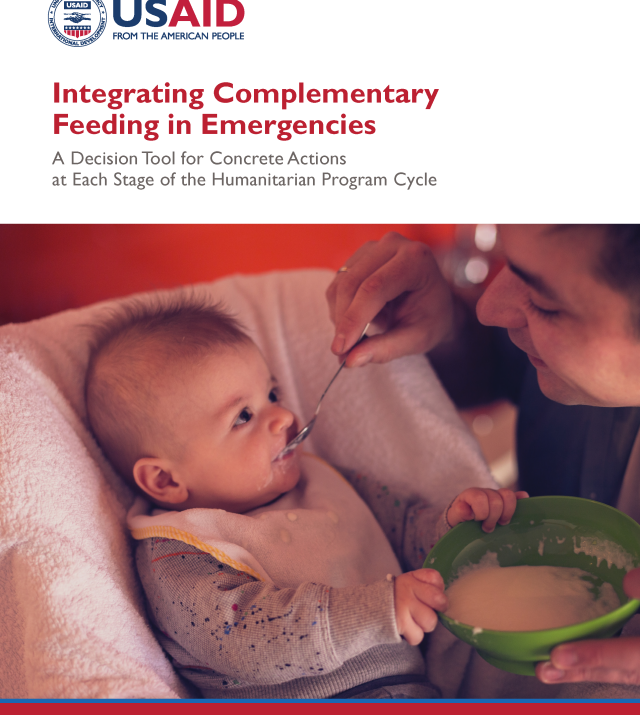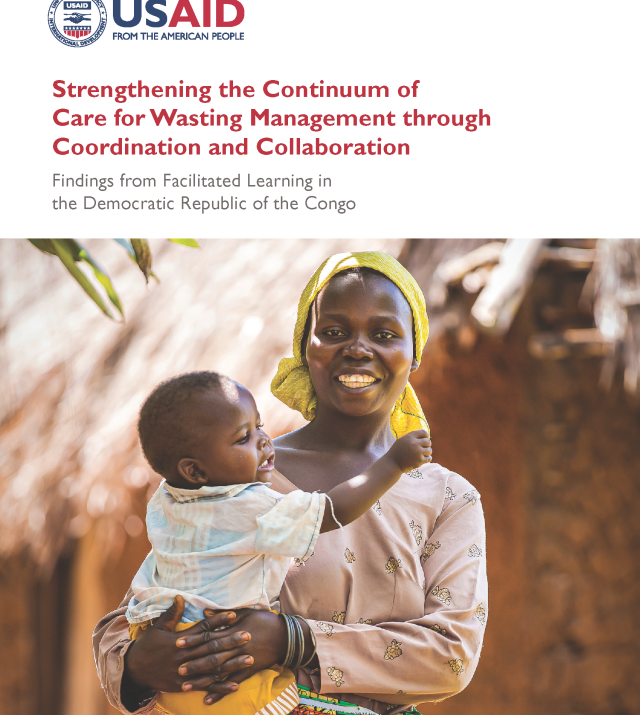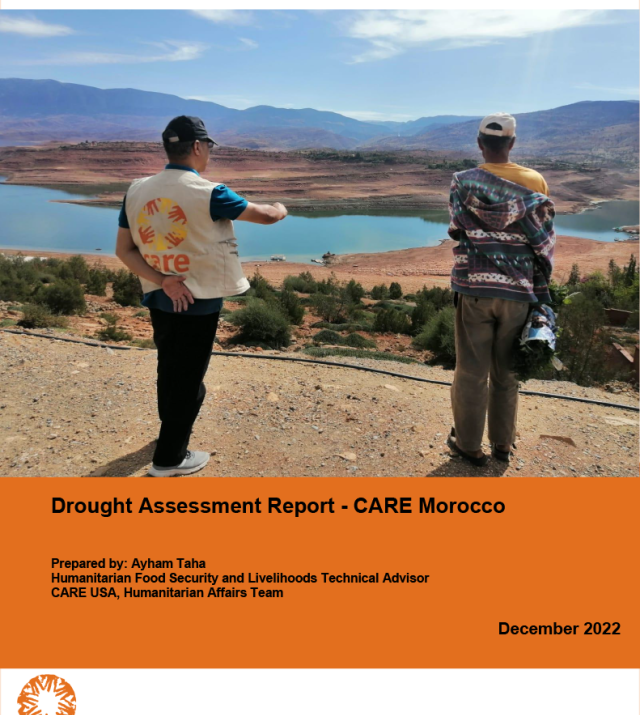
Nutrition in Humanitarian Contexts: A Collection of Resources

This is a collection of resources curated to support USAID’s Bureau for Humanitarian Assistance (BHA) emergency implementing partners who focus on addressing acute malnutrition, and non-emergency implementing partners who focus on addressing chronic malnutrition. These materials were developed by USAID Advancing Nutrition. Topics include:
- Improving Women and Children’s Diets in Emergency Contexts
- Optimizing Food Assistance Modalities
- Wasting Treatment and Prevention
- Social and Behavior Change
Improving Women and Children's Diets in Emergency Contexts
Women and children are especially vulnerable in emergency settings resulting from natural disasters, conflict, or protracted crises. Two areas of interest for emergency implementing partners are complementary feeding in emergencies and exploring how nutrition-sensitive agriculture can contribute to nutrition in protracted emergencies.
- Resources
-
Complementary Feeding in Emergencies
- Complementary Feeding in Emergencies Programming and Resources Webinar
- Complementary Feeding in Emergencies Programming in Myanmar
- Complementary Feeding in Emergency Programming: Myanmar Case Study
- Complementary Feeding in Emergencies Programming in Yemen
- Complementary Feeding in Emergency Programming: Yemen Case Study
- Mapping and Gap Analysis of Tools for Complementary Feeding in Emergencies
- Integrating Complementary Feeding in Emergencies: A Decision Tool for Concrete Actions at Each Stage of the Humanitarian Program Cycle
Improving Women’s Dietary Diversity Through Agriculture In Complex Emergencies
- Agriculture in Complex Emergencies: Exploring the Association between Agricultural Programs and Dietary Diversity among Women and Children in Cameroon: Study Findings
- Agriculture in Complex Emergencies: Exploring the Association between Agricultural Programs and Dietary Diversity among Women and Children in South Sudan: Study Findings
- Agriculture in Complex Emergencies: Exploring the Association between Agricultural Programs and Dietary Diversity among Women and Children: A Synthesis of Study Findings from Cameroon and South Sudan
Food Assistance Modalities for Improved Nutrition in Emergency and Non-emergency Contexts
USAID works with partners to provide lifesaving food assistance to the most vulnerable around the world and reduce hunger and malnutrition so that people have adequate, safe, and nutritious food. The tools and resources below are aimed at integrating a greater focus on nutrition in the food assistance modalities supported in both emergency and non-emergency contexts.
- Resources
-
- Resource Transfers for Nutrition: Review of Recent Experience and Evidence
- Modality Decision Tool: Nutrition Addendum
- Complementary Feeding in Emergencies Programming and Resources
- Small-Quantity Lipid-Based Nutrient Supplement Program Implementation
- Programming Small-Quantity Lipid-Based Nutrient Supplements: Lessons Learned and Tool to Strengthen Implementation
- Small-Quantity Lipid-Based Nutrient Supplements: What to Communicate to Program Participants
- Lipid-Based Nutrient Supplements: Evidence and Program Guidance
- Developing Food-Based Recommendations for Complementary Feeding Using Locally Available Foods at the Household Level in Matabeleland North, Zimbabwe
- Understanding How Cash and Voucher Assistance Programs for Nutrition Are Implemented: A Review of Programmatic Case Examples from Burkina Faso, Mali, Niger, Somalia, and Colombia
- Food-Based Recommendations Guide for Household-Level Programming
Treatment and Prevention of Wasting
Although often associated with emergency situations and food insecurity, wasting affects children in more stable contexts, too. Because wasted children have a high risk of mortality, reducing the burden of wasting is a public health priority, featured in the World Health Assembly targets and the Sustainable Goals. Stronger coordination and collaboration between USAID partners and projects, innovative products and food-based approaches, and understanding contextual factors that may influence program design and quality can help address child wasting.
- Resources
Social and Behavior Change
Social and behavior change (SBC) approaches are essential to improve nutrition and can help enhance the resilience of vulnerable populations around the world. SBC is the systematic application of iterative, theory-based, and research-driven processes and strategies for change at the individual, community, and society levels. SBC cuts across all sectors within RFSAs with behavioral outcomes at the core of RFSA theories of change.
- Resources
-
- Learning from Experience: Findings from an SBC Review of USAID Development Food Security Activities
- Social and Behavior Change Competency Assessment: Tool for Resilience Food Security Activities
- Community Health Worker Competency List for Nutrition Social and Behavior Change
- Measuring Social and Behavior Change in Nutrition Programs: A Guide for Evaluators
- Evaluating Social and Behavior Change Components of Nutrition Activities: A Design Guide for USAID Staff

